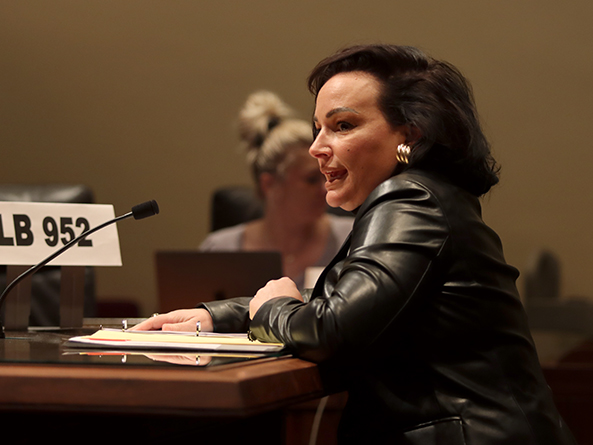Bill would require Summer EBT participation
The Health and Human Services Committee heard testimony Feb. 1 on a bill that seeks to provide summer meals to low-income children in Nebraska.

LB952, introduced by Omaha Sen. Jen Day, would require the state Department of Health and Human Services to opt into the federal Summer Electronic Benefits Transfer, or Summer EBT, program. Under the program, families whose children are eligible for free and reduced price school meals would receive $40 per eligible child for each month that school is not in session during the summer.
States were given the option to enroll in Summer EBT last year. Gov. Jim Pillen declined, and Nebraska is one of 15 states that chose not to participate.
Day said the bill would serve an estimated 150,000 Nebraska children and emphasized the growing need across the state for support in accessing food. She said the number of Nebraska households that are food insecure has risen from 10.7% to 13.5% since 2017.
“This places Nebraska above the national average and gives us the eleventh highest [rate of] food insecurity in the nation,” Day said.
Summer EBT is a successor of the Pandemic EBT program and federal dollars would fund all of the estimated $18 million in aid that would be provided to Nebraska families under LB952. Day said the state would be responsible for paying half of the administrative costs associated with implementing Summer EBT — an estimated $420,000 — which she said would be well worth it.
“A $32 million impact to the local economy in exchange for about $400,000 in [administrative] fees,” she said. “There’s no reason not to do it.”
Katie Nungesser testified on behalf of Voices for Children in Nebraska in support of the proposal. She said current resources and programs available to children in the summer months are insufficient.
“Nebraska ranks among the top states with the lowest success rates in connecting hungry children with meals over the summer,” Nungesser said. “Astonishingly, only 9% of food insecure children in Nebraska were connected to summer meal sites.”
Reva Evans, program coordinator of the therapeutic school at Heartland Family Service, also testified in support of the bill, emphasizing the impact hunger can have on a child’s ability to learn. Research shows that children who live in poverty are two academic years behind their peers, she said, and much of that academic lag can be traced to a child’s summer environment.
“When they’re worried about how they will eat over the weekend, it’s hard to feel safe,” Evans said. “Our students want to learn, they actually really love to learn … they just need the right tools and they need to be able to focus.”
Also speaking in support of the measure was executive director of the Nebraska Catholic Conference, Tom Venzor, who noted the importance of a collaborative approach to addressing childhood hunger.
“When we are looking to combat hunger, we have to think holistically about the various mechanisms at our disposal,” he said. “[LB952] is an important element in meeting the food insecurity needs of Nebraska students across the state.”
No one spoke in opposition to the bill and the committee took no immediate action on it.


